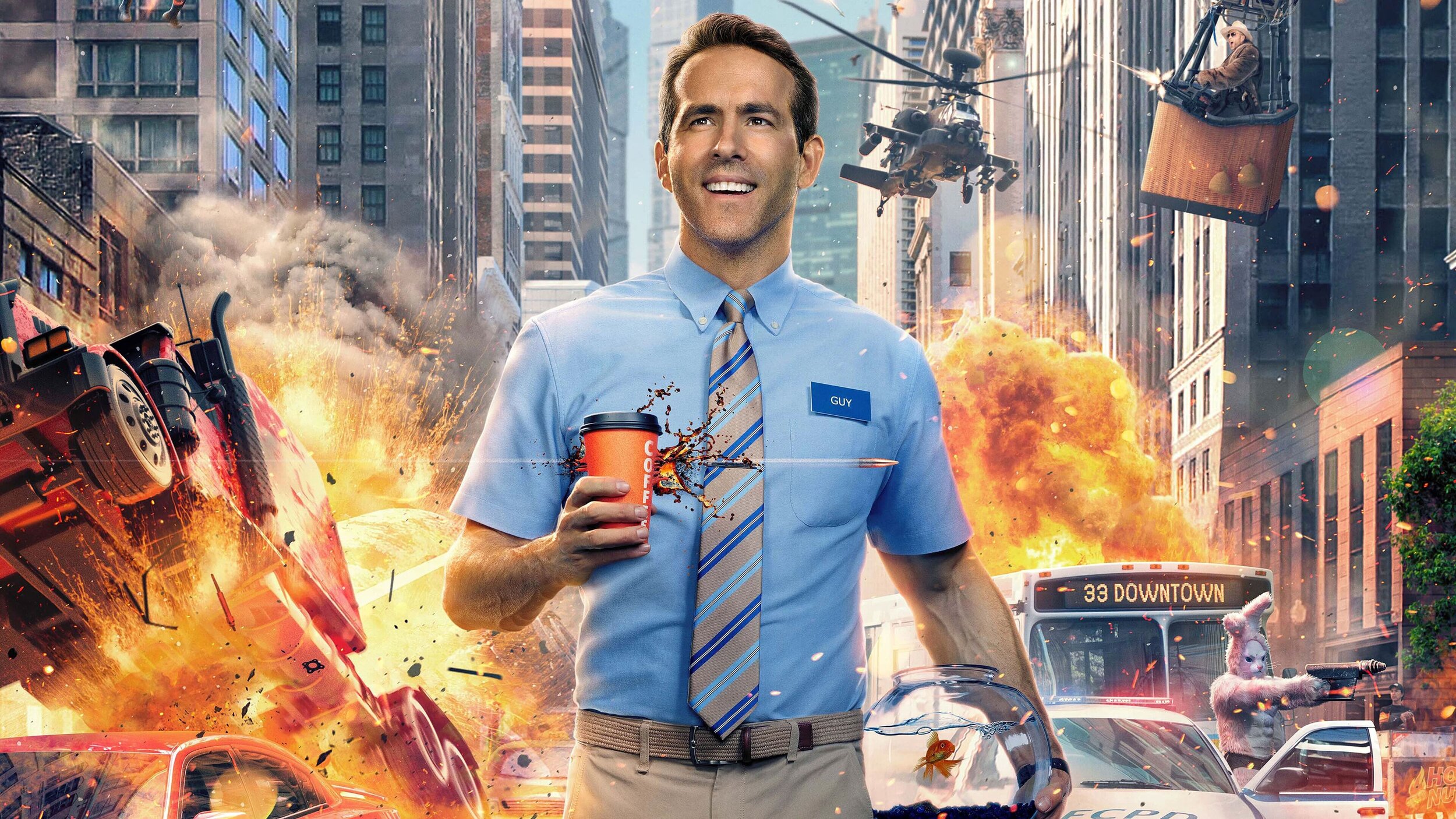Free Guy
The reason Shawn Levy’s Free Guy is probably the best video game movie ever made is straightforward: it is not based on one. Through their 20th Century Studios proxy, Disney has finally made a movie where the theme of originality cannot be turned on its head against the company. Free Guy is very much an original film, even if it borrows a little bit from a lot of other movies.
The script, written by Matt Liebermann and Zak Penn, is graceful on its feet and never takes itself too seriously. While Free Guy is far from the meta-ness and irreverence of fellow Ryan Reynolds-starrer Deadpool, it has a certain airiness to it that makes it feel light and the time fly by. Although still a little long at one hundred and fifteen minutes, it very rarely drags and does not suffer from the same third act fatigue that many an action blockbuster falls prey.
At its best, Free Guy is gleeful fun. The semi-open world video game the characters inhabit is rich in detail, and it does not rely on pre-existing properties to connect to audiences – in great contrast to the similar video-gamey Ready Player One. The visual effects are also commendable for their subtlety. Whilst maybe not as eye-popping as those in other blockbusters, there is not too much visual clutter, and the cinematography by George Richmond can focus on the characters.
Moreover, the characters are what sell the film. Ryan Reynolds’ innocent yet simultaneous sincere yearning is the lightning-in-a-bottle combination at the centre of the film. He is hilarious to watch as he obliviously skyrockets up the video game levels, but he can also reel in the audience and tug at their heartstrings during pivotal scenes. Jodie Comer is also incredible as the woman who helps Reynolds realise his full potential. There is a surprisingly sweet subplot involving Joe Keery and Comer as well, but Comer’s empathetic acting and expressive face are the real draws.
Although not as fleshed out, other characters provide their doses of fun, including Lil Rel Howery as Reynolds’ buddy, Buddy. The only disappointment is Taika Waititi, as painful as that is of a statement. Usually, the standout of any project he is involved in, his villain here is never very convincing or at all funny. Detracting from the simple genre convention of a villain, said character has to be empathetic or entertaining or terrifying, but Waititi was none of those elements to provide a satisfying or compelling creation.
The choice of contemporary song on the soundtrack, including an earworm of a track by Mariah Carey, add to the atmosphere and overall flavour of the film. Nevertheless, Christophe Beck’s score picks up the slack in the scenes where licensed music would be too much. One particular scene, involving Keery and Comer, has an absolutely beautiful piece by the composer to stretch the features emotional intent.
Tied together by the heartfelt theme of breaking free from societal conventions, Free Guy is a delightful, refreshing experience. It by no means wipes Disney’s slate of lacklustre blockbusters free, nor does it signal an expansion of the studio’s palette into the more artistic fare. However, if Disney is going to keep making blockbusters that dominate the box office, hopefully, they are more like Free Guy, and less like the schlock the studio usually churns out to average or underwhelming fanfare.


